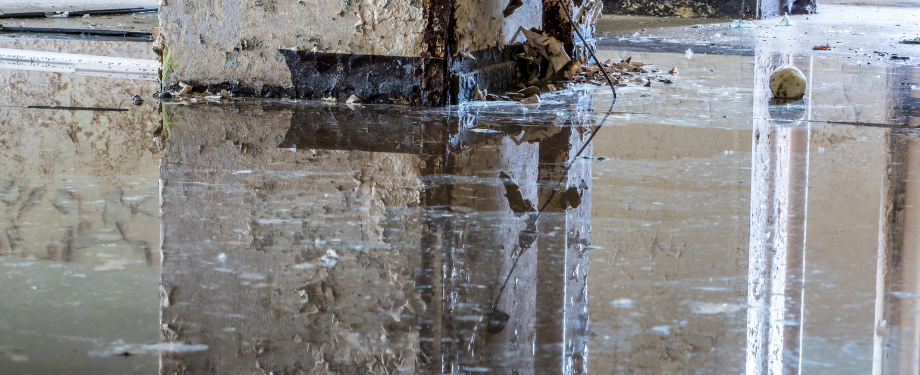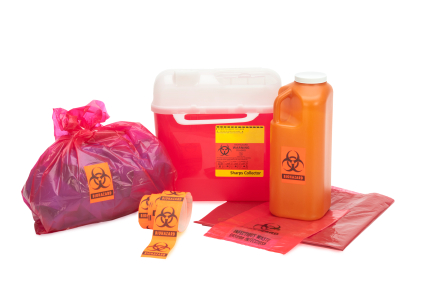What to Look for When Choosing a Water Damage Restoration Contractor
Water damage can destroy a home or building within seconds. Hurricanes, burst pipes, malfunctioning appliances, and sewageSewage is wastewater containing biological and chemical cont... More backups are types of instantaneous water damage. Homeowners will need to look for a reputable water damage restorationWater damage restoration is the professional process of clea... More contractor to repairRepair is the act of fixing or restoring damaged property, m... More the ruin.

The cost to repairRepair is the act of fixing or restoring damaged property, m... More water damage can be shockingly high. The severity of the water damage, the category of water that caused the destruction, and where it occurred impact the price. On average, however, homeowners pay $3,304 to fix a water damage disaster.
Since repairing water damage can put a homeowner back several thousand dollars, it is critical to choose a professional service that will handle the cleanup with professionalism and skill. Here are 11 factors that homeowners should consider when looking for a water damage restorationWater damage restoration is the professional process of clea... More expert.
1. Evaluate experience
An experienced water damage restorationWater damage restoration is the professional process of clea... More company is worth the investment in cost. A service with a decade’s worth of experience understands the urgency needed to repairRepair is the act of fixing or restoring damaged property, m... More water damage. Plus, experienced technicians will jump into the repairRepair is the act of fixing or restoring damaged property, m... More instead of letting water damage spread.
On the other hand, inexperienced restorationRestoration is the process of returning a property to its pr... More services may spend time looking for solutions and inadvertently let water damage worsen. Look for companies that have worked on several projects over the years, especially recent ones. A long-running business will have a long list of satisfied customers.
2. Assess availability
While experience is a must for repairing water damage emergencies, so is availability. Avoid water damage restorationWater damage restoration is the professional process of clea... More contractors that offer limited availability, considering that forcing a homeowner to wait to resolve a crisis only increases the level of water damage and leads to moldMold is a type of fungus that grows in damp or humid conditi... More growth.
3. Determine timeframe
Just as the availability of technicians speeds up the restorationRestoration is the process of returning a property to its pr... More, the timeframe for the completion of the task is equally important. Be aware that the severity of the water damage can significantly impact the expected timeframe for restorationRestoration is the process of returning a property to its pr... More. Receive an estimated timeframe to best prepare.

4. Research equipment
The equipment used during a restorationRestoration is the process of returning a property to its pr... More project can accelerate the rate of restorationRestoration is the process of returning a property to its pr... More, address moisture issues before they become a moldMold is a type of fungus that grows in damp or humid conditi... More problem, and help restore personal property, such as documents, heirlooms, artwork, and photographs. Ask what type of equipment will be used.
Moisture-detection equipment, for example, is critical to identify all areas affected by water damage. Since moisture can linger behind walls, under carpets and beneath wallpaper, high-tech equipment is necessary to pinpoint all the water damaged areas that must be addressed.
Water extraction equipment should also be advanced to eliminate all excess moisture. DehumidificationDehumidification is the process of reducing and controlling ... More and dryingDrying is the process of removing moisture from materials, s... More machinery must be powerful enough to hasten the dryingDrying is the process of removing moisture from materials, s... More process and ensure the water damaged areas are fully dry. Without proper equipment, restorationRestoration is the process of returning a property to its pr... More will be unsuccessful.
5. Review certification
A restorationRestoration is the process of returning a property to its pr... More company that has earned the Institute of Inspection Cleaning and Restoration Certification (IICRC)The Institute of Inspection, Cleaning and Restoration Certif... More is a homeowner’s best recourse when water damage strikes. IICRC certification is a clear indicator that the homeowner is working with a qualified team of professionals.
6. Ask about training
Training is equally important in the proper cleanup of water damage. A specific level of training is required for the safe handling and removal of certain types of water, such as contaminated gray water and toxic black water. Only licensed experts can classify and categorize water damage.
7. Confirm licensure
A qualified water damage restoration service is registered to operate in the state. Such a company is licensed and bonded. If legal issues arise, the homeowner’s best interests are protected. Before signing on the dotted line, ensure this information is clearly written in the contract.

8. Look for proof of insurance
General liability and worker’s compensation are necessary to prevent the homeowner from being held liable in the event an accident occurs on the property. Protecting oneself from liability is an important reason for working with restorations services that can show proof of insurance coverage.
9. Obtain help with insurance claims
Getting the most out of insurance is best done when the water damage restorationWater damage restoration is the professional process of clea... More contractor can provide help with filing the claim in a timely manner. The contractor will also fully understand the extent of the damage, thereby accelerating the insurance claim.
10. Receive references
Obtain a list of previous customers and speak with them to obtain important details about the restorationRestoration is the process of returning a property to its pr... More contractor’s professionalism and efficiency. References can provide valuable information about what it was like to work with the company and if the restorationRestoration is the process of returning a property to its pr... More was successful.
11. Review other services
RestorationRestoration is the process of returning a property to its pr... More companies that specialize in water damage may have expanded to include the restorationRestoration is the process of returning a property to its pr... More of other types of damage, such as fire and smoke. Choose a company that offers comprehensive restorationRestoration is the process of returning a property to its pr... More services so that quality help is available if another disaster occurs.
Why Choose RestorationMaster
Looking for a qualified, licensed water damage restorationWater damage restoration is the professional process of clea... More contractor should be done before an emergency happens. Homeowners can prepare for a disaster by keeping the contact information of a professional that provides water damage restoration services to homes and businesses.
IICRC technicians are experienced in handling all types of water damage emergencies. They use the latest equipment, from water extraction machinery to dryingDrying is the process of removing moisture from materials, s... More and dehumidificationDehumidification is the process of reducing and controlling ... More units, to ensure your property is restored as quickly as possible.

Property owners can count on skilled crews, who stand by 24 hours a day to respond to water damage crises. They arrive quickly to your water damaged building and begin cleanup right away, which limits the spread of destruction and improves the chances of a successful restorationRestoration is the process of returning a property to its pr... More.
Water damage restoration processes include the evaluation of the extent of water damage, the dryingDrying is the process of removing moisture from materials, s... More of affected materials, the cleaning of personal items, deodorization and moisture control. Removing moisture from the air is necessary to prevent moldMold is a type of fungus that grows in damp or humid conditi... More colonies from infesting the building.












